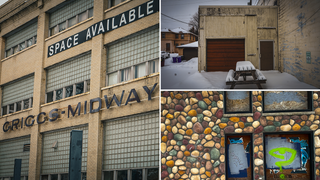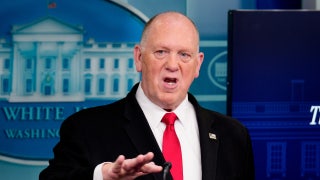On the flight from Los Angeles to Chicago, there was an older, well-dressed man in the aisle seat and he leaned toward me to ask what my business in Chicago was. I told him that I do documentaries and wanted to know what Pastor Corey Brooks on the South Side thought of the critical race theory controversies sweeping the nation. The man hesitated before revealing that even his tech company had not been spared. Then he said, "As a White man…" and let his voice trail off as if no further explanation was needed. I pushed back. Why say White? I expected him to somewhat acknowledge the absurdity of his words, but he eyed me as if I was the absurd one. "If I speak up, I could lose my job." We did not say another word to each other.
But I thought of the man as I drove my Jeep rental into the Woodlawn community on the South Side. I could not figure out what bothered me but there was something hollow and inauthentic about him. He seemed to have abandoned his principles for cheap conformity to external political and racial pressures. He may have kept his paycheck coming, but at what cost? I had met many folks like him in recent years and I often wondered where the rot that reduced them to skin color came from.
As I walked across the parking lot through the heavy humidity into the coolness of the New Beginnings Church and was greeted by Pastor Brooks, I knew I was in the presence of an entirely different kind of a human being. The pastor stands nearly six-foot-four and there is a spring to his step, despite being chosen by God to carry one of America’s heaviest burdens.
Every day he deals with gang members, senseless deaths, graduation ceremonies, the vengeful, the aspirational, new births, illiterate adults, newly released convicts, the hungry, overburdened single parents, wayward children, and every imaginable human condition. The pastor wakes up each morning not knowing if the day will bring joy or tragedy or both, and yet he wakes up each morning.
I told the pastor that I thought of him as I watched elites battle other elites over critical race theory in private schools and wealthy communities I had never before heard of. Several writers argued that we should heed these elites — the wealthy professionals to the academics in ivory towers — because their children would run America one day. But there was a strangeness, a kind of disconnect to these battles.
On one hand, the elites opposing critical race theory and its sister constructs seemed to have little idea that the battles they are fighting are rather old ones. On the other hand, the elites promoting these ideas in the name of what’s-best-for-Blacks seemed blind to how far removed their beliefs are from the needs of the very people they claim to want to help.
BEN SHAPIRO TO MSNBC CONTRIB CLAMINING SYSTEM IS RACIST: ‘YOU’VE SUCCEEDED’ IN THAT SYSTEM
Pastor Brooks smiled with tired eyes. Sometimes the man on the bottom sees far more clearly than the man on the top. The pastor said that he wished that these elites would experience the day-to-day reality in the South Side. They would then "discover that liberalism has not been our best friend."
The pastor spoke of liberalism not as a political ideology, but rather as an existential condition that coldly shapes one’s life. And the pastor knew that many Americans fighting today’s culture wars failed to realize that they are fighting an old enemy well known to Blacks: bad faith.
In the documentary, "What Killed Michael Brown?" (and in the mini-documentary accompanying this opinion piece), my father, Shelby Steele, describes this bad faith as faithlessness. He notes that racism in America has always made the classic struggle between good faith and bad faith much harder for Blacks. How does a young boy on the South Side keep good faith in America when he is constantly told that he is oppressed, a victim of White supremacy, and that he needs outside forces to help him? This bad faith disbelieves in the power of Blacks to make a life and disbelieves in America and her principles — to the point that one often ends up giving up even before starting.
Where does this bad faith come from? Ironically, much of it comes from post-60’s liberalism which was far more about White guilt than Black development. Unlike classical liberalism, with its focus on principles like freedom and equality, post-60s liberalism derives its legitimacy from America’s original sin, which was not slavery, but simply the use of race as a means to power.
There was a profound blindness to post-60s liberalism from the very beginning. It only saw Black people symbolically—not people like themselves. It failed to recognize the gradual, upward progress that many Blacks made in the first half of the 20th century.
The pastor’s eyes glowed as he recalled how Woodlawn and nearby communities like Bronzeville had doctors, dentists, businessmen, and jazz musicians walking the sidewalks. Many of these Blacks, including my grandfather, bought homes for their largely intact families. These Blacks possessed good faith even as segregation reigned everywhere.
Instead of extending this progress, post-60s liberalism ushered in an era of dependency and created, for the first time, a Black underclass. Suddenly, many Blacks found themselves in a world of housing projects, man-in-the-house rules, racial preferences, school busing, and so on. After nearly 70 years of this liberalism, when one steps outside the pastor’s church one sees a world of social services, failing schools, boarded up homes, businesses owned by outsiders, and police cruisers sitting in the medians of streets. It is a world created by bad faith.
Because post 60’s liberalism’s power can only be sustained only as long as America continues to be racist, there is an insistence that America has made no moral evolution because at its very core it is racist. It has developed an entirely new lexicon of oppression to explain the present day struggles of many Black people and to insist America repair these deficits—thereby perpetuating Black dependency, bad faith and liberal-progressive power.
ELI STEELE: THE SHAMEFUL SCAPEGOATING OF ASIANS BY NYC’S CRITICAL RACE THEORY MACHINE
The "White man" that Pastor Brooks hears daily on the streets of the South Side became "White supremacists." "The system" or "the man" became "systemic racism." "White people" became "White privilege" or "White fragility." "Acting White" became "merit is White supremacy." "Racism is everywhere" became "critical race theory." All of these mantras lead to one end product: bad faith.
Now many Americans are feeling what Blacks have long felt. Bad faith gnaws at our belief in what is right and wrong. It casts doubt on our belief in America and her principles. And it makes us disbelieve that we are making progress as a people and as a nation.
But perhaps the worst thing about bad faith is that it conditions us to show deference to race, the lowest of human qualities. That is why the man on the plane ride to Chicago bothered me. He yielded to racial pressures and placed himself into the White box. He comforted himself with the lie that he had no choice. But one always has the freedom of choice, no matter how narrow the margin is. And what made his choice damaging was that he gave the forces behind post-60s liberalism exactly what they want: an unimpeded path to further deepen the reach of bad faith into our society.
On the South Side far from the limelight of the critical race theory wars, Pastor Brooks works every day to spread good faith and his task is a daunting one. The pastor’s non-profit community center, Project H.O.O.D., offers countless bootstrap programs from construction to electrical engineering in hopes of inspiring as many people as possible to move away from the claustrophobic world of bad faith into the world of possibilities that is known as good faith.
It is this good faith that instills in us individual initiative, self-belief, delayed gratification, discipline, hope, and all the things that one needs to make a life of meaning. The stronger the individual makes oneself, the more of an asset that individual is to family, friends, and society at large, and that is why the path of good faith is the only option.
As I was getting ready to leave, I asked the pastor how he felt about the fact that he would not get one dime of the billions of dollars pouring into the diversity, equity, and inclusion industry, the nation’s leading pusher of bad faith. He could only shake his head and smile, "I can’t pay attention to none of that. I got too much work to do."
Then I asked him if there was a Biblical quote that reflected his predicament. He said what came to his mind instead were the words of Martin Luther King, Jr. The pastor spoke of how he hoped we could create a world where all of God’s children would be judged not by their color but by the content of their character. I admit that my first reaction was that these words were cliched. But as I listened to the pastor on how he strives to live by King’s words every day, I realized that he was talking about a man who gave America the best expression of good faith ever seen. King and his legion of foot soldiers marched for decades to become full and equal members of the American society and they did so against a vicious White supremacy that showed no signs of relinquishing power. They believed in America and they wanted into America. It is this good faith that we are in danger of betraying today.
Eli Steele is a documentary filmmaker and writer. His latest film is "What Killed Michael Brown?" Twitter: @Hebro_Steele









































